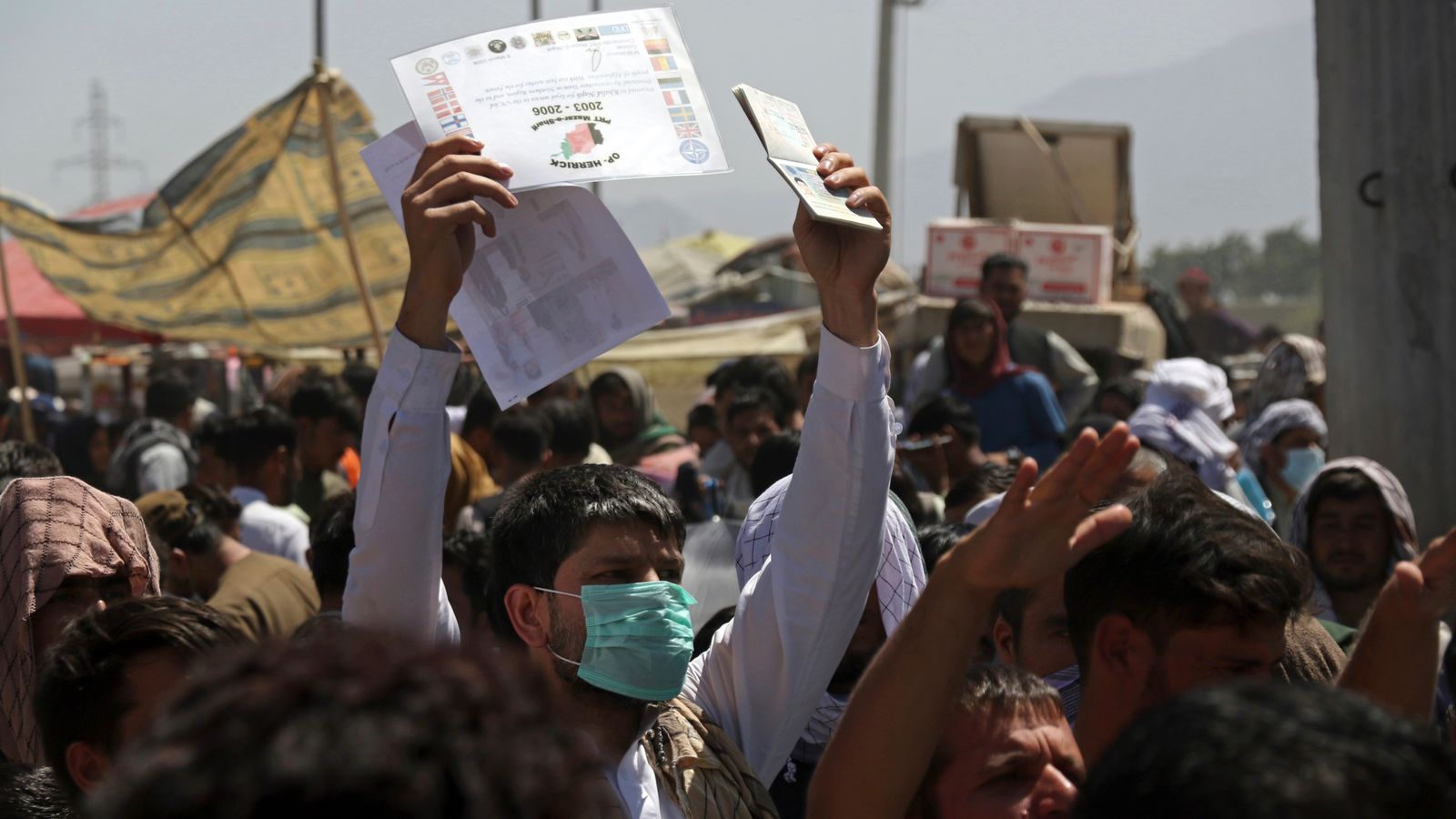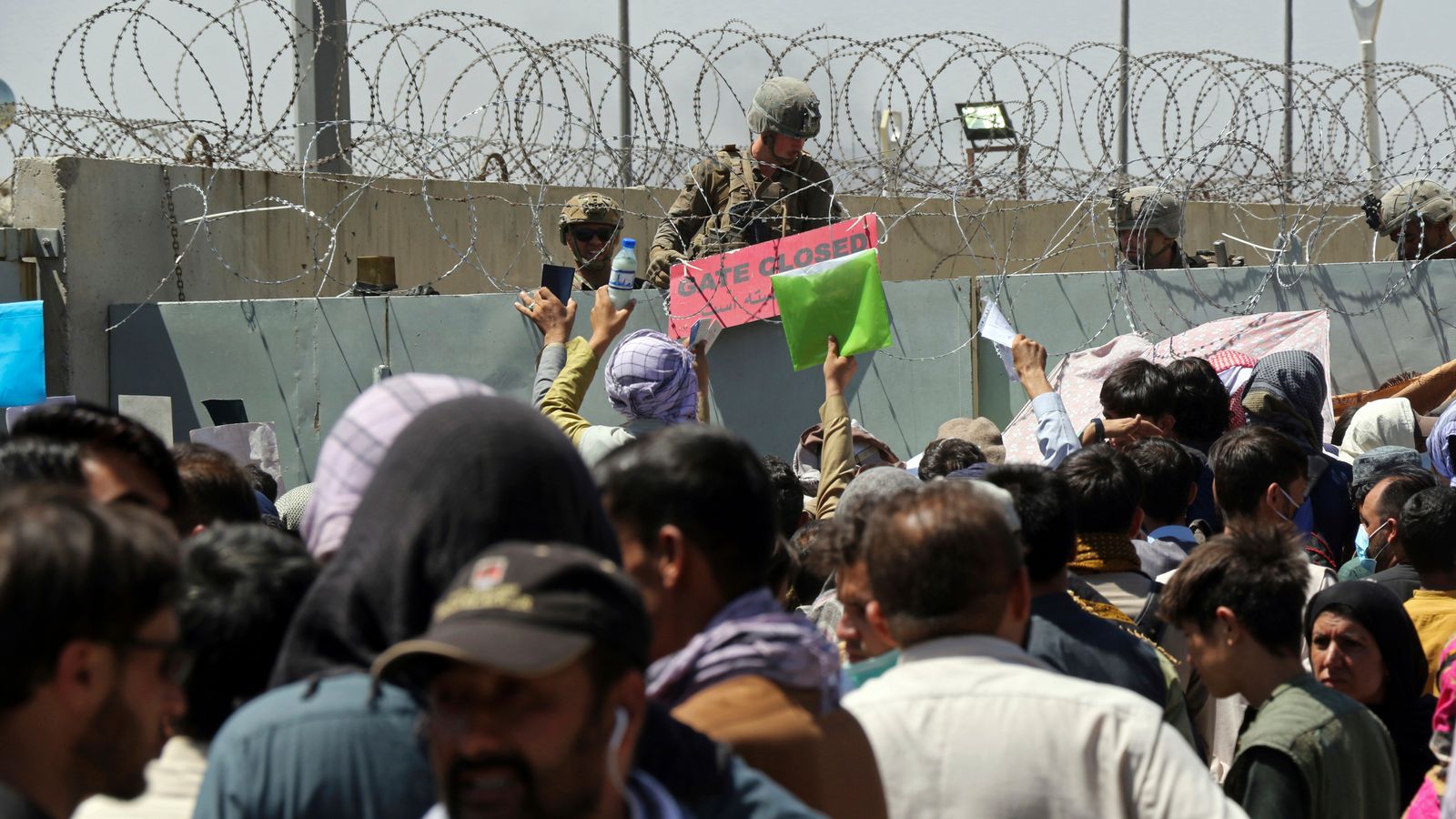In a dramatic revelation that underscores both a massive failure of data security and an extraordinary effort at damage control, the UK government has confirmed that up to 7,000 Afghan nationals are being secretly relocated to the United Kingdom following a catastrophic data breach at the Ministry of Defence (MoD). The breach, which exposed the personal details of nearly 20,000 individuals, occurred in early 2022 but was only acknowledged this week—more than three years after the incident.
The details came to light after a British high court judge lifted a super injunction that had, until now, prevented media coverage of the blunder. The injunction had been sought by the UK government in a bid to suppress details of what is being described as one of the most severe security lapses in modern British military history.
The Breach and Its Fallout
The data breach, traced back to the mishandling of an email in February 2022, exposed sensitive information—names, contact details, and other identifying data—of 18,714 Afghans who had applied for relocation under the UK’s Afghan Relocations and Assistance Policy (ARAP). These individuals had supported or worked with British forces during the UK’s two-decade-long presence in Afghanistan from 2001 until the Taliban’s return to power in 2021.

At least some individuals named on the compromised list are believed to have been killed in the years since the breach, although it remains unclear whether their deaths were directly linked to the exposure of their identities. The Taliban regime is known to target individuals associated with foreign forces, branding them traitors.
The MoD only discovered the breach in August 2023, under then-Prime Minister Rishi Sunak. A super injunction was imposed in September 2023, silencing public and media discussion of the crisis while the government scrambled to relocate thousands of affected individuals—at enormous expense and under complete secrecy.

Legal, Financial, and Political Fallout
In a statement to Parliament on Tuesday, Defence Secretary John Healey offered a “sincere apology” for the breach and acknowledged concerns over the lack of transparency. He emphasized the difficulty of navigating national security and humanitarian obligations, stating:
“No government wishes to withhold information from the British public or Parliament in this manner. But the safety of innocent people was at stake.”
According to government figures, the initial cost of relocating the nearly 7,000 Afghans will be around £850 million. However, an internal MoD document from February suggested the total cost could climb to £7 billion once long-term support, housing, integration, and litigation costs are factored in. The MoD now dismisses that projection as outdated, but legal experts say the true cost may ultimately surpass current expectations—especially if victims succeed in pursuing compensation claims.

Barings Law, a legal firm representing around 1,000 of the affected individuals, has accused the government of “deliberately concealing the truth.” Adnan Malik, head of data protection at the firm, called the incident “an incredibly serious data breach.”
“It involved the loss of personal and identifying information about Afghan nationals who have helped British forces defeat terrorism. Our clients live in fear of reprisal and expect substantial financial compensation,” Malik stated.
The firm is preparing legal action to seek damages for its clients, and said that financial settlements—while insufficient to undo the trauma—could help survivors rebuild their lives.
Government Review and Public Transparency
An internal review by Paul Rimmer, a retired civil servant, concluded earlier this year that the risk to individuals may be “minimal,” stating that the exposure was unlikely to substantially change any person’s threat level given the existing volume of leaked data in Afghanistan. It added that merely appearing on the breached dataset would not likely be grounds for Taliban targeting.
That assessment played a key role in the court’s decision to lift the super injunction earlier this week.
Still, critics argue that the government’s prolonged secrecy undermined public trust. Labour leader Sir Keir Starmer, whose government inherited the scandal after the 2024 general election, pledged full transparency going forward and said his administration would “do right by those put at risk.”
The scandal adds to a string of recent criticisms aimed at the MoD’s handling of sensitive data. In September 2021, another breach revealed the email addresses and identities of 265 Afghans to each other in a mass email sent to a distribution list, prompting the UK’s Information Commissioner to fine the MoD £350,000 in December 2023, calling the lapse “egregious” and “potentially life-threatening.”
Market and Economic Implications
From a public finance and market standpoint, the unfolding situation presents significant fiscal challenges for the UK government. While the initial £850 million for the emergency relocation will be covered through defence and foreign aid budgets, economists warn that:
- Litigation costs and compensation settlements could push spending well into the billions, adding pressure to the UK’s already-stretched post-COVID public spending framework.
- The need to house and support thousands of refugees will place further strain on the UK’s social and housing infrastructure, potentially stoking political tensions around immigration.
- Private security and legal firms, meanwhile, may benefit from increased government contracting and legal settlements, marking an unintended boom for sectors linked to risk management and litigation.
The situation may also impact the UK’s diplomatic credibility, particularly among NATO allies and within the broader scope of Western withdrawal from Afghanistan.
Human Dimension
While the numbers are staggering, the human cost remains at the center of the scandal. Many of the relocated Afghans—interpreters, aid workers, and former support staff—had risked their lives to assist British troops in their mission to combat terrorism. Now, many are arriving in the UK traumatized, displaced, and unsure of their future.
One source involved in the relocation effort said:
“They deserve better than being treated like a secret. These people stood by us. The least we can do is stand by them.”
Related Market Note:
Investors tracking UK public sector expenditures are closely watching developments tied to defence and humanitarian allocations. Legal and security contractors such as Serco, G4S, and law firms in the public interest sector may see modest short-term growth opportunities due to litigation and relocation logistics tied to this crisis.






